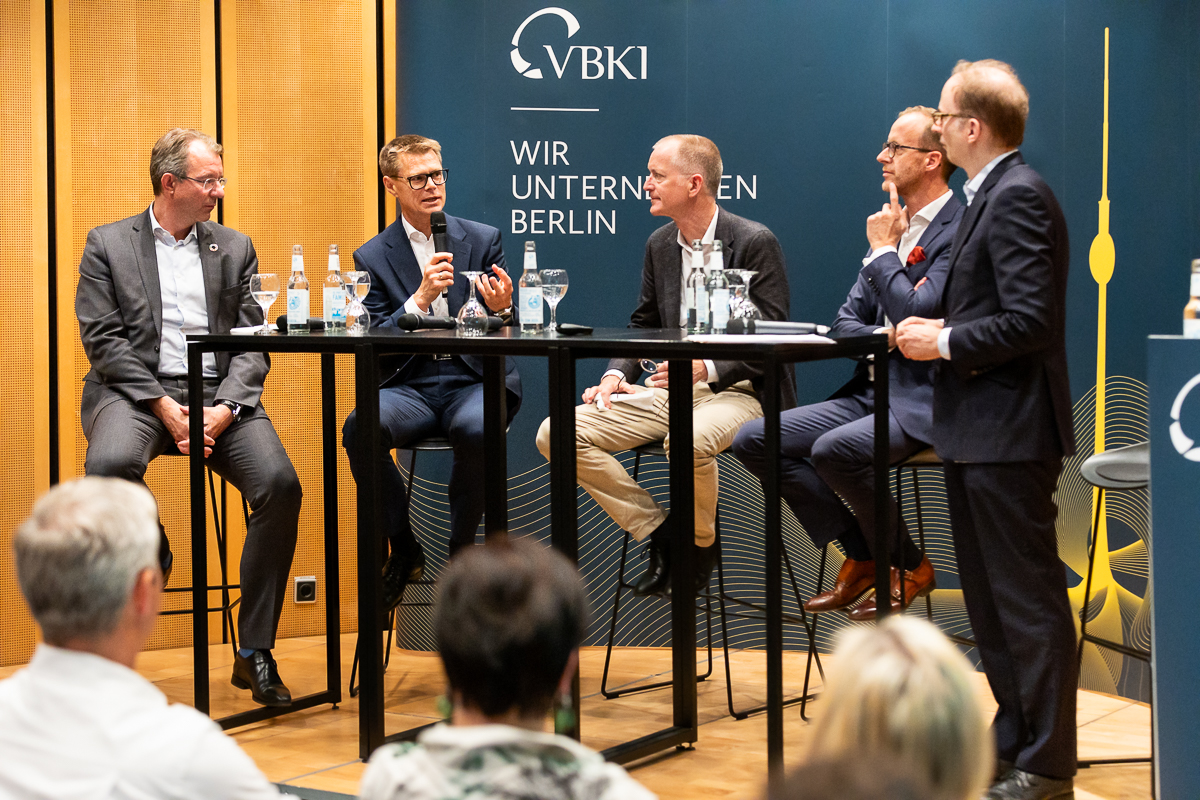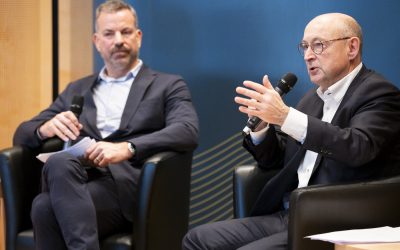A mammoth project
The Berlin heating transition: Where we stand, what tasks lie ahead.
Text: Sebastian Thomas | Head of Communication & Marketing
The path to a climate-neutral city in Berlin inevitably leads via the building sector. Our demand for heating energy currently accounts for around 40 percent of CO2 emissions in the city - which is also due to the fact that around 90 percent of heat is generated using fossil fuels. So what can we do? An important step towards the heating transition is so-called heating planning: Where do we currently stand? What - as yet unused - options for climate-friendly heat generation are available to us? How can these options be reconciled with the demand for heat throughout the city? What measures need to be taken and who can implement them?
Questions upon questions, which we discussed intensively with a panel of experts. The panel was made up of top managers from business and politics who have a leading role in implementing the heating transition, namely GASAG CEO Georg Friedrichs, Christian Feuerherd, CEO of the district heating network operator BEW Berliner Energie und Wärme and Udo Schlopsnies, Working Group Energy Efficiency of Buildings, Fundamental Issues of the Heating Transition in the Climate Protection and Climate Adaptation Department of the Berlin Senate Department for Mobility, Transport, Climate Protection and the Environment. The event was moderated by Dr. Ferdinand Schuster and Oliver Zernahle from the VBKI Intelligent Infrastructure Committee, whose members had initiated the evening.
Even the rhetoric - mammoth task, gigantic undertaking - quickly made it clear that the challenge is enormous. The expansion of Berlin's district heating network is likely to play a major role in overcoming this challenge - at least in the densely populated inner city area. Today, around a third of Berlin's households are heated with district heating, and the proportion is to be increased to 50 percent (side note: in Copenhagen, the figure is currently 97 percent). However, as Christian Feuerherd reported, this will not yet help the climate. Because: as of 2024, over 90 percent of district heating is based on fossil fuels. In addition to grid expansion, energy generation must therefore be transformed - hopes are pinned on waste heat (from data centers, for example), geothermal energy and power-to-heat technologies, particularly in order to better store renewable electricity. "The principle is 'use instead of curtailment'," says Christian Feuerherd.






How will the other half of Berliners who are not connected to the district heating network heat their homes in future? The Building Energy Act also obliges owners of existing buildings to obtain at least 65 percent of their heat from renewable sources in future. Are heat pumps in combination with solar energy the solution? Georg Friedrichs has his doubts; he has high hopes for geothermal energy: "I'm a big fan of near-surface geothermal energy, which we could bake like pretzels over the next 20 years." However, there is a conflict of objectives here with water protection, which makes such drilling impossible or at least more difficult, especially in peripheral urban areas that will have to manage without district heating in the future.
At the end, we look back on an interesting evening with illuminating first-hand insights into one of the major transformation processes of the future. However, the realization also remains that the heating transition is like a calculation with many unknowns - political will, social acceptance, technological progress, unclear financing - and that the path to a climate-neutral city is likely to be a rocky one. But a necessary one: in the past 20 years alone, the average annual temperature in Berlin has risen by 1.86 degrees, Georg Friedrichs calculated.
Impressions
To the picture gallery: Please click here>
You might also be interested in
More impact, less bureaucracy
VBKI discussion paper: Three proposals for a sustainable university landscape
"We don't have a knowledge problem, we have an implementation problem"
Business Breakfast: Vonovia CEO Rolf Buch as a guest at the VBKI
Experience politics up close
VBKI Young Professionals as guests at Bellevue Palace









